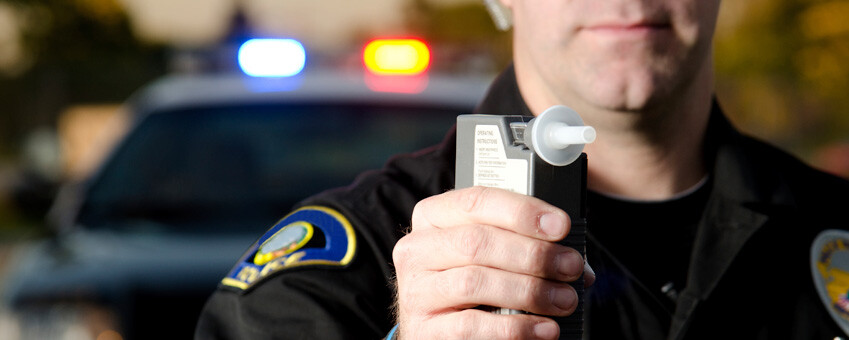Implied Consent Refusal Defenses in Michigan
In Michigan, there are a few implied consent refusal defenses your lawyer can use.
The penalty for refusing a breath alcohol test is harsh: a one-year license suspension with no guarantee for a restricted license upon completion.
If someone has been arrested for suspicion of DUI, Michigan law is designed to give the police the upper hand.
They can demand you take a chemical test of their choosing, either a breath alcohol or blood test.
Facing DUI charges? Unhappy with your current attorney? Request a free consultation now.

If they suspect operating under the influence of drugs, they’ll definitely request a blood test as that is the only way, currently, to find and measure drugs in your body, like marijuana.
If a person is accused of a refusal, they have the right to fight it with the Secretary of State.
It can also be appealed to a circuit court judge.
There are three (3) implied consent refusal defenses, which we explain below.
1. Challenge The Lawfulness Of The Arrest
The police cannot arrest and test anyone they want.
They have to have a solid amount of evidence that someone is under the influence before they can arrest and test.
This level of evidence is called “probable cause,” which is defined as an amount of evidence that would cause a reasonably cautious person to believe that evidence exists of a crime.
Therefore, all of the evidence before the arrest must be analyzed including:
- the reason for the stop
- the administration and performance of field sobriety tests
- the administration and results of a Preliminary Breath Test (PBT)
For instance, if someone was pulled over for speeding, then the officer failed to properly administer the field sobriety tests then didn’t properly administer a PBT, there could be a strong case that there was not enough probable cause to arrest.
Therefore, the refusal is warranted.
2. Question Whether There Was An Actual Refusal
Some officers will call a person’s actions a refusal, which can often be effectively fought.
For instance, if a person is arrested for DUI and asks legitimate, lengthy questions about the process, the officer may get annoyed and call that occasion a refusal.
This isn’t a refusal, as it’s not unreasonable for an arrested person, particularly if they have been drinking alcohol and their judgment being impaired, to ask questions even if they are lengthy.
It’s okay if a person is confused about the process and wants to take the time to make sure they’re making the right decision.
If the officer cites a refusal before an arrested person has actually refused, this can be effectively challenged.
Facing DUI charges? Unhappy with your current attorney? Request a free consultation now.
3. Question The Reasonableness of Any Refusal
If an arrested person asks for reasonable accommodations in return for agreeing to take the test and the officer declines, this can also be challenged effectively.
For instance, if a person would like to speak to an attorney before taking the test and the officer refuses this reasonable request, courts have held that this “refusal” is reasonable and their license cannot be suspended.
Similarly, if a person wants to go to the bathroom first or makes any reasonable request before taking the test, this can also save someone’s license from being suspended.
If this implied consent refusal defense doesn’t work, the arrestee can still get a restricted hardship license by asking a circuit judge.
What is a Hardship Restricted License?
If a license is suspended for six (6) months because of a chemical test refusal, a hardship restricted license can be requested.
It must be performed at the circuit court in the county in which the licensee resides.
A petition for a restricted driver’s license must be filed, in which the Attorney General will then respond.
The Court will usually grant the license, provided they’re assured that there will not be any continued drunk driving.
Generally, a substance abuse evaluation is necessary.
It’s a good idea to negotiate with the assistant attorney generals assigned to the case before the court date to receive their stipulation.
That will make the process a lot smoother and increase the chances of success.
It’s also necessary to demonstrate a real hardship, which means showing that there are no reasonable alternatives.
Such defenses for this include public transportation not being available and that a licensed household member cannot help.
A restricted hardship license can be granted for the entire six-month term and can have reasonable restrictions, including:
- Only driving to, from and during the course of employment,
- reasonable hours,
- no set hours, and
- driving to all court ordered obligations including community service and probation.
The Right Implied Consent Refusal Defense Can Save Your License
As you can see, there are several different implied consent refusal defenses.
The penalty for refusing a breath alcohol test is harsh: a one-year license suspension.
There’s also no guarantee for a restricted license upon completion.
However, with the right representation and defense, you can greatly increase your chances to get your driver’s license back.
Facing DUI charges? Unhappy with your current attorney? Request a free consultation now.
